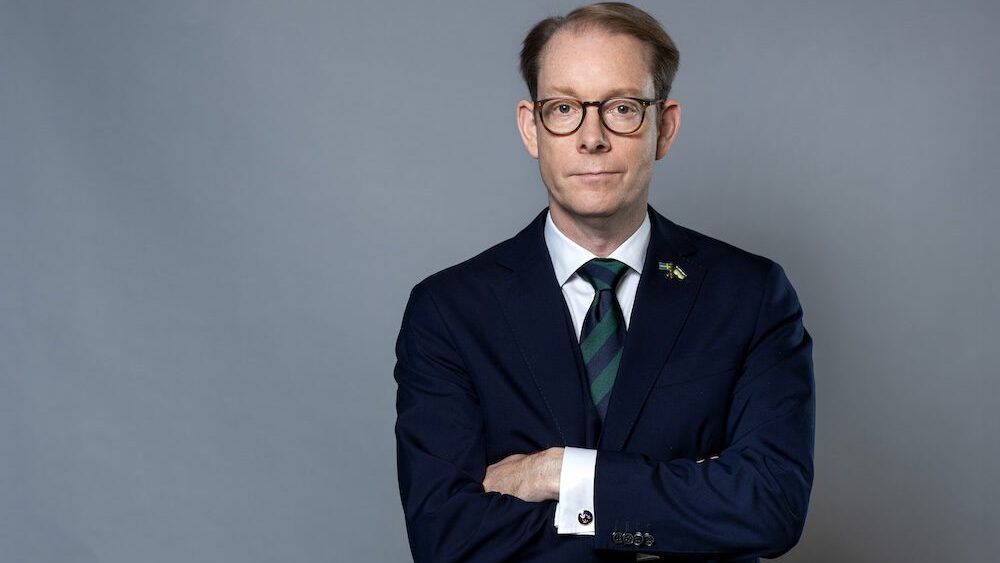
Foreign Minister Tobias Billström.
Photo: Kristian Pohl / Government Office
Less than a week before the Swedish parliament goes into session, Ulf Kristersson’s center-right government is finding itself without a foreign minister. Tobias Billström, a veteran politician who also served as migration minister during the 2015-16 migration crisis, tendered his resignation on Wednesday afternoon.
In a post on X, Billström said, “It has not been an easy decision but something that I have thought about and processed for some time.”
Swedish media speculated about a rift between Billström and PM Ulf Kristersson, citing Kristersson ‘hogging the limelight’ at the signing of the NATO membership—a task the FM would normally perform—as an example. Diverging stances on the Israel/Palestine issue was also brought up as a potential source of disagreement, as was the appointment of a new cabinet secretary at the Ministry of Foreign Affairs. The outgoing FM, however, denied a conflict with the PM, telling state broadcaster SVT, “I wouldn’t say that there are any particular contradictions.”
Billström also rejected claims that his decision was triggered by the fact that significant power has shifted from the foreign ministry to the cabinet committee—the body responsible for leading and coordinating the government’s work— over the past few years:
It is quite natural in a situation where we have the most serious security policy situation since the Second World War that the Cabinet Committee, with the Prime Minister as its most prominent representative, has an interest in these issues.
Summarizing his main achievement as foreign minister, Billström said he was first and foremost very proud of Sweden’s NATO membership.
The importance for the security of Sweden and our Nordic-Baltic friends can hardly be overestimated.
We are in the most serious security policy situation since World War II and this government has carried out a historic restructuring of Swedish security policy. We now belong to the core of the countries that support Ukraine and have also put forward a long-term policy to counter Russian power expansion.
The outgoing FM, citing his young age (“I’m only 50 years old”), said he is looking forward to “contributing and working hard in other contexts where my commitment comes into its own.” He has not received any offers from NATO headquarters, he said, but told SVT, “I have received a very friendly text message from Jens Stoltenberg who thanked me for good cooperation.”
PM Kristersson said in a post on Instagram that Billström “has more than fulfilled his military service … I strongly believe in going between politics and business, so that you gain experience from more than one place. All of Sweden owes Tobias Billström a lot.”
The fact that both Billströms resignation and the PM’s comment were made from personal social media accounts, rather than announced through normal government channels, is still unusual and likely to make speculations continue.
